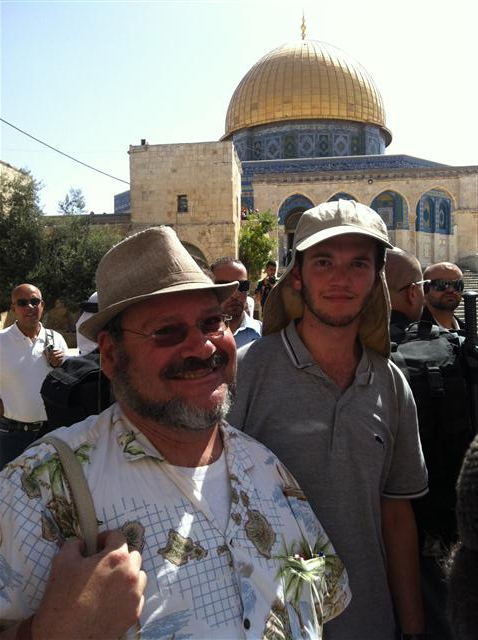Is It Time to Stop Fasting on the 17th of Tamuz? Back in 2005, Rabbi Benny Lau cited in an op-ed in Ma'ariv a publication of the Movement for Torah Judaism that examined the need, after the 1967 Six-Day War, to observe some of the minor annual fasts. The debate revolved around the need for an updated interpretation of Zecharia 8:19: "So says the God of hosts: the fast of the fourth month, and the fast of the fifth, and the fast of the seventh, and the fast of the tenth, shall be joy and gladness and cheerful seasons to the house of Judah; therefore love truth and peace." In our lunar Jewish year, which begins in the month of Nissan, the fast of the fourth month is 17 Tamuz; of the fifth month is 9 Av; of the seventh is the fast of Gedalia on Tishrei 3; and of the tenth month is 10 Tevet. The 1967-5727 war took place from Iyar 26 until Sivan 2. The first fast that happened on the Jewish calendar after the victory was Tamuz 17. Were Jews supposed to keep fasting, having just experienced the miracle of the liberation of all of Zion and then some – from the banks of the Suez Canal to the Syrian regions? The dispute – largely among the National-Religious, the Haredim did not engage publicly in a similar debate – was over a segment in tractate Rosh Hashanah 18b that says, in the name of Rav Hana bar Bizna quoting Rav Shimon Hasida: "They (the fasts referred to in Zecharia 8:19) were called fast days as well as days of joy and gladness. In times of peace – they will be days of joy and gladness. No peace – we fast." So it came down to whether the Jews in Israel considered the miracle of 1967-5727 to have restored our peace in Israel sufficiently to merit having a nice lunch on Tamuz 17 – or not. Obviously, no one actually went ahead and defied the fast that year, at least not publicly, which means that even in the midst of their euphoria over the miracle of liberation, learned Jews understood that we weren't quite there yet. But Rav Papa made things—and choices—more complicated, when he added his version: "In time of peace – they will be days of joy and gladness; in times of religious oppression (shmad) – fasting; no religious oppression and no peace – if they want to they fast, if they don't they don't. So the Gemara asks, Does this include Tisha B'Av? Which Rav Papa answers: Tisha B'Av is different, since it is imbued with multiple suffering." Maimonides (Laws of Fasting 5:19) expects the switch from fasting to joy to take place after the arrival of the Messiah, meaning he does not accept Rav Papa's third option. Other Rishonim (medieval contemporaries of Rashi and Maimonides) hold that Rav Papa's view is merely a hypothetical, and that once the Jews have begun to fast on the four minor days mentioned in Zecharia, we keep on fasting until a dramatic, messianic change of the course of history. Maimonides views Rav Papa's third option as pertaining to the period of the Second Temple (Pirush Hamishna Rosh Hashanah 1:3). Apparently, in those years, if a Jew wished to fast on Tamuz 17, he stated it during the Amida prayer, as we do today for an individual fast. But on 9 B'Av everyone was obligated to fast the full 25 hour period, give or take. It has been suggested that during the Second Temple they still mourned the loss of the First Temple for two reasons: the fact that the ten, everyday miracles of the first did not exist in the second; and the fact that the first destruction of the Temple was a precedent, and therefore could be repeated. It appears that in order to revoke an ancient law such as the fast of Tamuz 17, mourning the day on which Moses broke the two tablets of stone on Mount Sinai; the daily Tamid offering ceased to be offered; the walls of Jerusalem were breached; the Roman warrior Apostomus (or maybe it was Antiochus Epiphanes) burned a Torah scroll; and an idol was erected in the Temple – there really has to be a major consensus among all of us that the time of joy and gladness is here again. It's the same thing as the prayer at the Temple Mount: the real reason Jews are not allowed to even visit up there in large groups, never mind to pray, is that the vast majority of Jews don't want to go there. We're talking about religious, Orthodox Jews, who view those who do go as being somewhere between crazy and dangerously crazy. Here's an example: in the morning supplications we say on Mondays and Thursdays, there's a lot of text about the burnt down Jerusalem: "God, in all your righteousness, please remove your ire from your city Jerusalem, your holy mountain, because for our sins and the sins of our fathers Jerusalem and your nation are a disgrace to all our surroundings. […] God give us your ear and hear, open your eyes and see the desolation of the city named after You. […] Look down from the heavens and see, how we have become subjects of mocking and ridicule among the gentiles. We are considered like sheep led to the slaughter, to be killed and annihilated, beaten and humiliated…" If most Jews today feel that the above conditions still exit in God's world, despite the political and social changes that have taken place, then we're probably fasting next Tuesday, Tamuz 17 (July 11). If we feel otherwise, we should start speaking out.
| 


No comments:
Post a Comment